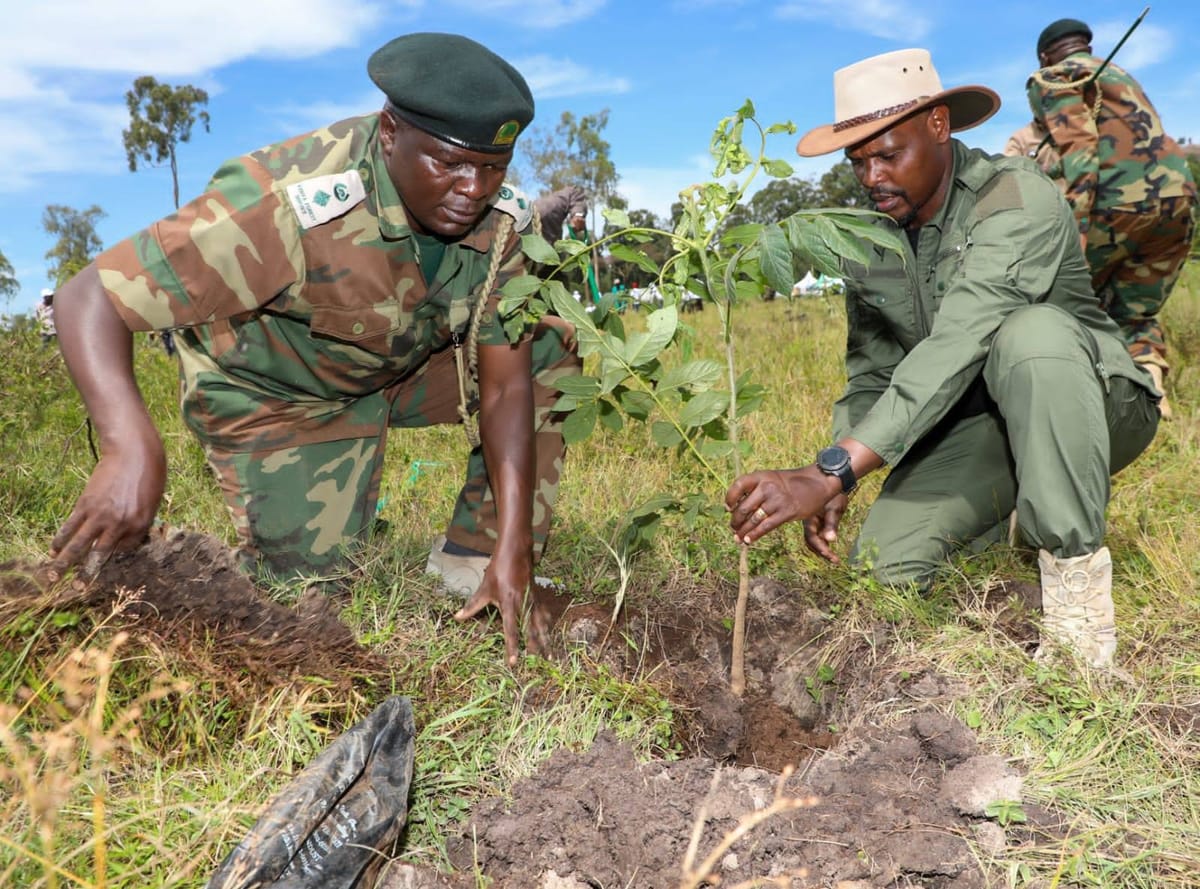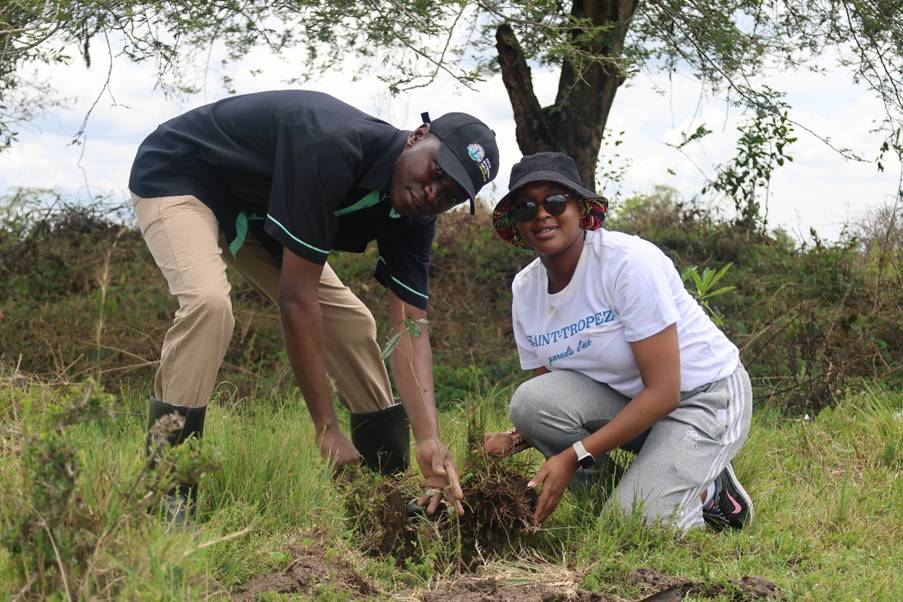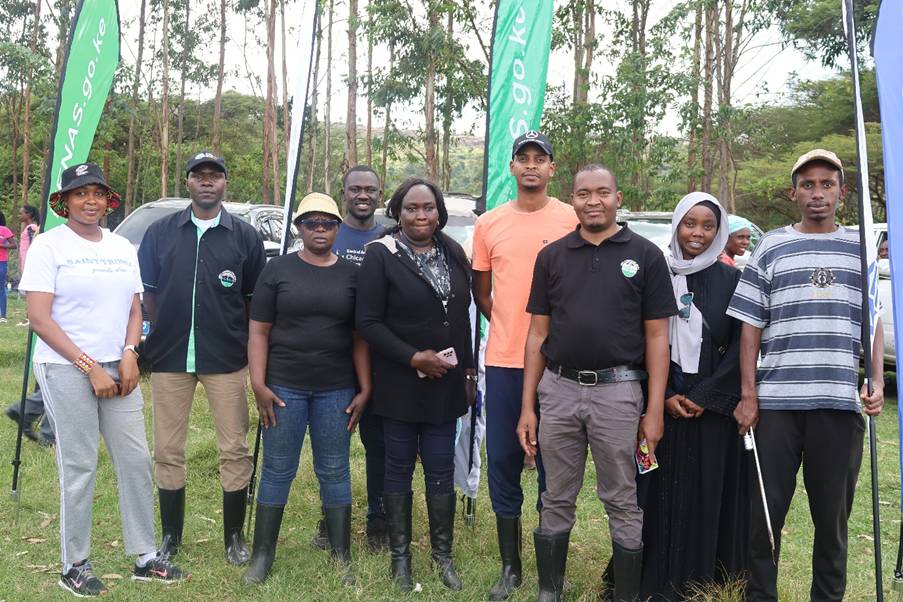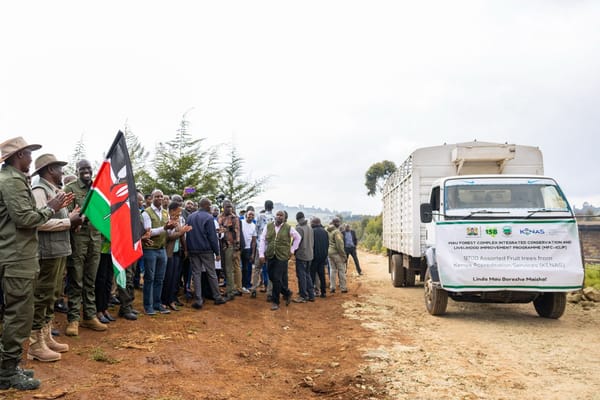International Day of Forests 2025: Nurturing Forests to Nourish People

Forests are the foundation of life, providing food, clean air, water, and livelihoods for millions. This year, the International Day of Forests (IDF) 2025 was marked under the theme: "Forests and Food – Nurture the Forest to Nourish the People." The theme highlights the crucial link between healthy forests and food security.
KENAS joined stakeholders including Kenya Forest Service, Bomet County Government, WWF, SMACHS Foundation, in commemorating the day at Chepalungu Forest Station (Kapchumbe), Bomet County, where 10,000 trees were planted as part of Kenya’s national effort to grow 1.3 million trees. This aligns with the country’s ambitious 15 billion Tree Growing Initiative to restore degraded landscapes and enhance food security.
The event was graced by Forestry PS, Mr. Mugambi Gitonga, representing CS for Environment, Climate Change, and Forestry, Hon. Aden Duale, who urged Kenyans to plant fruit, nut, and fodder trees to improve nutrition and food security. He emphasized:
"By planting trees, we are restoring forests and securing the future of our food systems. Forests provide fertile soils, regulate climate, and support livelihoods for millions of Kenyans."
Additionally, PS for Environment & Climate Change, Dr. Eng. Festus K. Ng’eno, reinforced the government’s commitment to afforestation and called on communities to participate actively in nationwide reforestation efforts.
The event also showcased Kenya’s state-of-the-art forest firefighting and surveillance project for the Kenya Forest Service (KFS), funded by the French government to enhance forest protection.
Other key speakers included:
✔ Bomet Governor, H.E. Hillary Barchok
✔ Forest Development Secretary, Mr. George Tarus
✔ World Wide Fund for Nature (WWF) - Kenya Representative, Mr. Jackson Kiplangat
✔ Ms. Charlene Ruto, Founder & Patron of SMACHS (Smart Mechanized Agriculture & Climate Action for Humanity & Sustainability) Foundation
Forests are not just the lungs of the Earth—they are also vital sources of food, medicine, and livelihoods for millions worldwide. The International Day of Forests 2025 highlights this crucial relationship under the theme: "Forests and Foods – Nurture the Forest to Nourish the People."

KENAS staff taking part in planting trees during the International Day of Forests, 2025
How Accreditation Strengthens the Forest-Food Connection
Sustainable forest management ensures communities benefit from forests without depleting them for future generations. One key enabler of sustainable forestry and food security is accreditation, which guarantees that forest-derived products meet global quality, safety, and environmental standards.
Accreditation provides a framework for ensuring sustainability, safety, and compliance in forest-related industries. Here’s how it plays a crucial role:
1. Sustainable Forestry Management
To protect forests while utilizing their resources responsibly, certification bodies ensure compliance with ISO 14001:2015 (Environmental Management Systems) and FSC (Forest Stewardship Council) standards. Accreditation:
✔ Ensures responsible harvesting practices that maintain biodiversity and ecological balance.
✔ Supports forest conservation efforts and reduces illegal logging.
2. Food Safety & Quality from Forests
Forests provide a variety of edible products, from nuts and honey to mushrooms and medicinal plants. To ensure they are safe for consumption, accreditation covers food safety standards like ISO 22000:2018 (Food Safety Management Systems) and HACCP (Hazard Analysis and Critical Control Points). Accreditation:
✔ Ensures forest-derived foods meet hygiene and quality standards.
✔ Facilitates access to local and international markets, boosting trade opportunities.

Part of the KENAS delegation to the tree planting event at Chepalungu Forest Station in Bomet County
3. Carbon Footprint & Climate Action
Forests play a critical role in climate change mitigation through carbon sequestration. Accredited Validation and Verification Bodies (VVBs) ensure that carbon offset projects meet standards like ISO 14064:1-2018 (Greenhouse Gas Emissions Accounting) and CORSIA (Carbon Offsetting and Reduction Scheme for International Aviation). Accreditation:
✔ Encourages afforestation and reforestation initiatives.
✔ Supports carbon credit programs, making forest conservation financially viable.
4. Timber & Non-Timber Forest Products (NTFPs) Certification
Timber, bamboo, resins, and other non-timber products need to be sustainably sourced and legally traded. Accreditation under ISO/IEC 17065:2012 (Product Certification) ensures traceability and compliance with global forestry regulations. Accreditation:
✔ Verifies that timber and non-timber products are sustainably and ethically sourced.
✔ Strengthens global trade by ensuring products meet international environmental and quality standards.
5. Forest-Based Medicinal and Herbal Products 🌿
Forests provide numerous medicinal and herbal products used in traditional medicine and pharmaceuticals. To ensure their efficacy and safety, accredited laboratories under ISO/IEC 17025:2017 (Testing and Calibration Laboratories) test and calibrate these products. Accreditation:
✔ Validates the quality, purity, and potency of herbal medicines and essential oils.
✔ Supports research and innovation in forest-based nutraceuticals and natural remedies.
KENAS's Commitment to a Greener Future
By accrediting competent conformity assessment bodies, KENAS plays a vital role in climate-smart forestry, carbon credit validation, and ensuring the safety of forest-based products. Accreditation safeguards forests while promoting sustainable economic growth. As Kenya continues its mission to restore forests and secure food systems, KENAS remains committed to fostering a greener, food-secure future for all.



